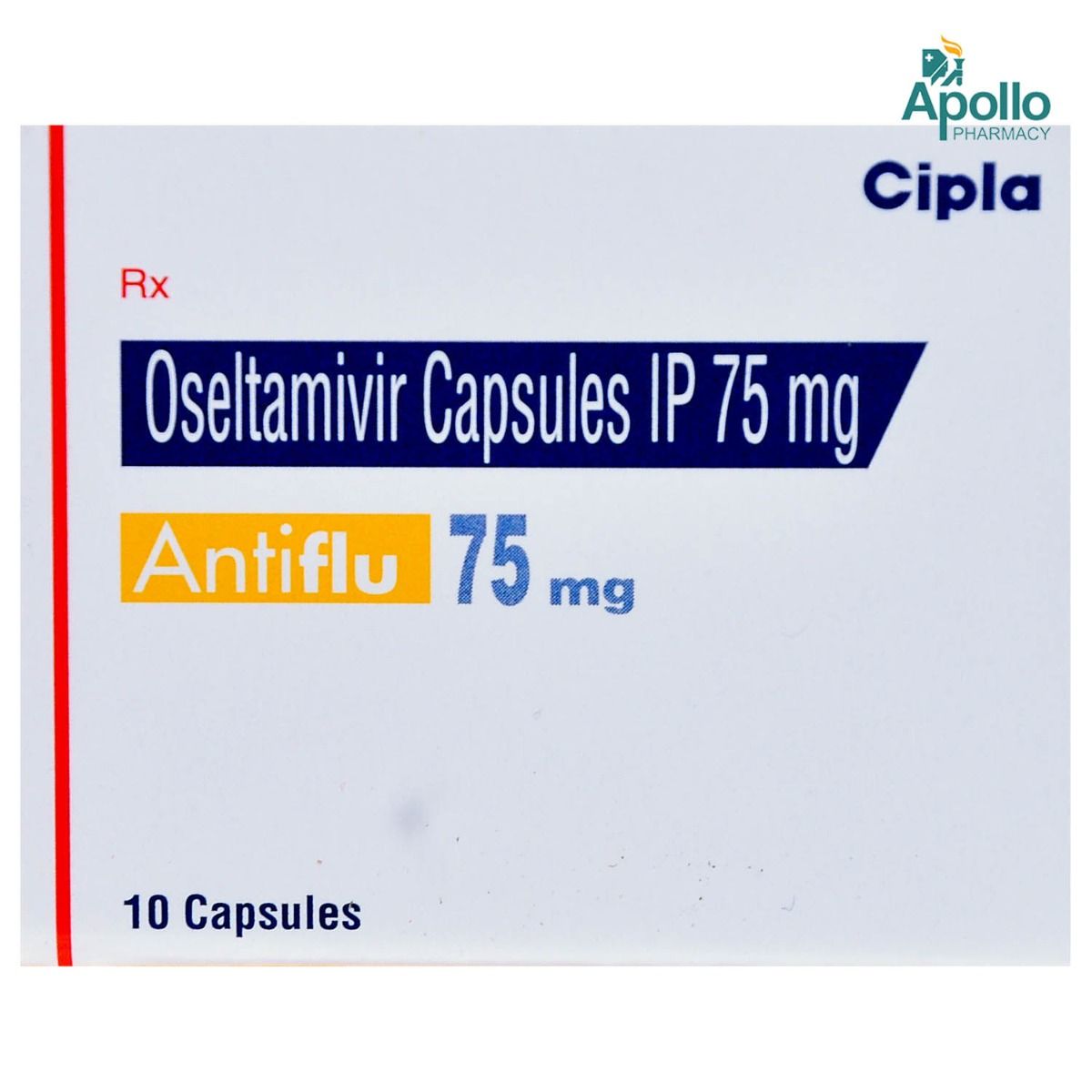- Home
- Health Condition
Medicine For Viral Infection
Medicine For Viral Infection
- Total Items (115)
 RX
RXValgan Tablet 4's
₹1320.90
MRP ₹1501
12% off
 RX
RXVelpanat Tablet 28's
₹14350
MRP ₹17500
18% off
 RX
RXSovihep V Tablet 28's
₹14350
MRP ₹17500
18% off
 RX
RXAntiflu 75 mg Capsule 10's
₹791.10
MRP ₹879
10% off
 RX
RXEntavir 0.5 mg Tablet 10's
₹711.50
MRP ₹790.50
10% off
 RX
RXValchek Tablet 2's
₹806.40
MRP ₹896
10% off
 RX
RXPranovir 500 Tablet 10's
₹269.10
MRP ₹299
10% off
 RX
RXResof Total 400 mg/100 mg Tablet 28's
₹15785
MRP ₹19250
18% off
 RX
RXValnova Tablet 10's
₹2930.30
MRP ₹3573.50
18% off
 RX
RXVirolfi 450 mg Tablet 10's
₹3514.50
MRP ₹4286
18% off
 RX
RXVagacyte Tablet 2's
₹688.50
MRP ₹765
10% off
 RX
RXIsojol Tablet 10's
₹1080
MRP ₹1200
10% off
 RX
RXHepcvel Tablet 28's
₹14350
MRP ₹17500
18% off
 RX
RXVirovir 500 Tablet 3's
₹315.50
MRP ₹350.50
10% off
 RX
RXVylster Tablet 2's
₹715.50
MRP ₹795
10% off
 RX
RXCmvir 450 mg Tablet 2's
₹756.90
MRP ₹841
10% off
 RX
RXPenvir 500 Tablet 3's
₹284.90
MRP ₹316.50
10% off
 RX
RXNatclovir 250 Capsule 30's
₹2533
MRP ₹2980
15% off
 RX
RXFamcimac 500 Tablet 3's
₹309.20
MRP ₹343.50
10% off
 RX
RXValgacel 450Mg Tablet 2'S
₹771.30
MRP ₹857
10% off
 RX
RXMicrovir-500 Tablet 3's
₹346.10
MRP ₹384.50
10% off
 RX
RXT-Alpha 1.6 gm Injection 1's
₹2459.18
MRP ₹2999
18% off
 RX
RXValstead Tablet 4's
₹1408
MRP ₹1600
12% off
Medicine For Viral Infection
Viral infections are caused by viruses, which are microscopic organisms that can infect various parts of the body, leading to illnesses like the common cold, flu, chickenpox, HIV/AIDS, and more. Unlike bacterial infections, viral infections do not respond to antibiotics. However, there are several antiviral medications and treatments available that help to manage symptoms, reduce the severity of the infection, and sometimes even eliminate the virus from the body. In this guide, we will explore the different types of medicines used to treat viral infections, how they work, their benefits, and how to use them effectively.
Types of Medicines for Viral Infections
Viral infections are caused by various viruses, and the treatment depends on the specific virus involved. Below are common types of medicines used to treat viral infections:
1. Antiviral Medications
Antiviral medications help the body fight off harmful viruses. They can ease symptoms, shorten the duration of the infection, and reduce the risk of spreading the virus to others.
Common Medications:
- Oseltamivir: Used to treat and prevent influenza (flu).
- Acyclovir: Used to treat herpes simplex virus infections, including cold sores and genital herpes.
- Valacyclovir: Used to treat herpes virus infections, including shingles, cold sores, and genital herpes.
- Remdesivir: Used to treat COVID-19.
- Sofosbuvir: Used to treat hepatitis C.
2. Immune Modulators
Immune modulators help boost the immune system's response to viral infections. These medications are often used for chronic viral infections.
Common Medications:
- Interferons: Used to treat hepatitis B and C. They help the immune system fight off the virus.
- Imiquimod: Used to treat certain types of human papillomavirus (HPV) infections, including genital warts.
3. Symptomatic Treatments
These medications do not directly target the virus itself but instead help alleviate symptoms associated with viral infections, providing comfort during recovery.
Common Medications:
- Acetaminophen: Used to reduce fever and relieve pain.
- Ibuprofen: Used to reduce inflammation, fever, and pain.
- Decongestants: Used to relieve nasal congestion.
- Antihistamines: Used to relieve allergy symptoms, such as runny nose and itching.
4. Vaccines
Vaccines are a preventive measure that protects against specific viral infections. They stimulate the immune system to recognise and fight particular viruses, preventing future infections.
Common Vaccines:
- Influenza Vaccine: Protects against the flu.
- COVID-19 Vaccine: Protects against COVID-19.
- Hepatitis B Vaccine: Protects against hepatitis B.
- HPV Vaccine: Protects against human papillomavirus (HPV), which can cause genital warts and certain cancers.
5. Antiretroviral Medications
Antiretroviral medications are specifically used to manage HIV infections. They work by preventing the virus from replicating in the body, helping individuals live longer, healthier lives.
Common Medications:
- Zidovudine: Used to manage HIV infection.
- Lamivudine: Used to manage both HIV and hepatitis B infections.
- Tenofovir: Used to manage HIV and hepatitis B infections.
6. Monoclonal Antibodies
Monoclonal antibodies are laboratory-made proteins that can bind to specific targets, such as viruses, to help the immune system fight off infections.
Common Medications:
- Regeneron: Used to treat COVID-19.
- Palivizumab: Used to prevent respiratory syncytial virus (RSV) in high-risk infants.
Benefits of Medicines for Viral Infections
The use of medications for viral infections offers several key advantages, helping to alleviate symptoms, shorten the duration of illness, and improve overall health outcomes. Below are the primary benefits of using antiviral medications and related treatments:
- Symptom Relief: Viral infections often come with uncomfortable symptoms such as fever, fatigue, pain, and inflammation. Medicines like acetaminophen and ibuprofen, along with antiviral treatments, can provide significant relief from these symptoms, making it easier for individuals to rest and recover.
- Shortened Duration of Illness: Antiviral medications can help reduce the severity of symptoms and the length of time a person remains ill. For example, medications like oseltamivir (Tamiflu) for the flu or remdesivir (Veklury) for COVID-19 can help patients recover more quickly, reducing the duration of the illness and improving the overall prognosis.
- Prevention of Complications: Certain viral infections can lead to serious complications, such as pneumonia, encephalitis, or organ damage. Antiviral treatments help lower the risk of these complications by targeting the virus directly and reducing its replication in the body. Additionally, immune modulators like interferons can support the immune system in fighting off the virus, thus preventing severe outcomes.
- Reduced Transmission: By reducing the viral load and controlling symptoms, antiviral medications can decrease the chances of transmitting the infection to others. This is especially important for contagious diseases like influenza, COVID-19, and herpes simplex virus infections, as it helps prevent outbreaks and protects vulnerable populations.
- Chronic Disease Management: Long-term antiviral treatments play a crucial role in managing chronic viral infections such as HIV, hepatitis B, and hepatitis C. These medications work by suppressing viral replication, controlling the virus' progression, and improving the patient’s quality of life. Effective management of chronic infections also reduces the risk of long-term complications, such as liver failure or immune system damage.
- Prophylactic Use: In some cases, antiviral medications are used prophylactically to prevent infection in individuals who have been exposed to a virus. For instance, post-exposure prophylaxis (PEP) for HIV, or antiviral medications given to high-risk individuals to prevent influenza, can help reduce the risk of infection even after exposure.
- Life-Saving Potential: In severe cases of viral infections, particularly those caused by viruses like HIV, hepatitis, or COVID-19, antiviral medications can be life-saving. Medications such as zidovudine (Retrovir) for HIV, remdesivir for COVID-19, or sofosbuvir for hepatitis C, have proven to significantly improve survival rates and reduce mortality in severe cases.
Dosage and Usage Instructions for Antiviral Medications
The dosage of antiviral medications depends on the type of virus, the severity of the infection, and the patient’s overall health. Always follow the dosage instructions provided by a healthcare professional.
- Timing: For maximum effectiveness, antiviral medications should be taken as soon as possible after the onset of symptoms, especially in the case of the flu, shingles, or cold sores.
- Completing the Course: Even if symptoms improve, it’s essential to complete the full course of antiviral medications to ensure the virus is fully eliminated
- Avoiding Overuse: Overuse of antiviral medications, particularly for conditions that do not require them, can lead to resistance and reduced effectiveness in the future.
Buy Medicines for Viral Infections Online
Easily order medicines for viral infections from Apollo 24|7 through their website or mobile app. With a broad selection of antiviral treatments, symptom relievers, and more, Apollo 24|7 ensures convenient home delivery. Access trusted brands and have your medications delivered right to your doorstep. Simply browse, place your order, and enjoy a smooth, hassle-free experience with tracking features at your fingertips.
Frequently asked questions
Antiviral medications work by targeting specific stages of the viral life cycle, such as blocking the virus's entry into cells, interfering with viral replication, or preventing the release of new virus particles.
No, antiviral medications are generally designed to target specific viruses. Some antivirals may be effective against a range of related viruses, but their efficacy can vary depending on the type of virus and the stage of infection.
Antiviral medications are most effective when taken early in the course of the infection, ideally within 48 hours of symptom onset. It's important to follow the prescribed dosage and duration as directed by a healthcare provider.
Common side effects of antiviral medications can include nausea, vomiting, headache, dizziness, and fatigue. Serious side effects are rare but may occur and should be reported to a healthcare provider.
Yes, some antiviral medications can be used prophylactically to prevent viral infections in individuals who have been exposed to the virus. For example, antiviral drugs can prevent influenza or herpes simplex virus infections.

